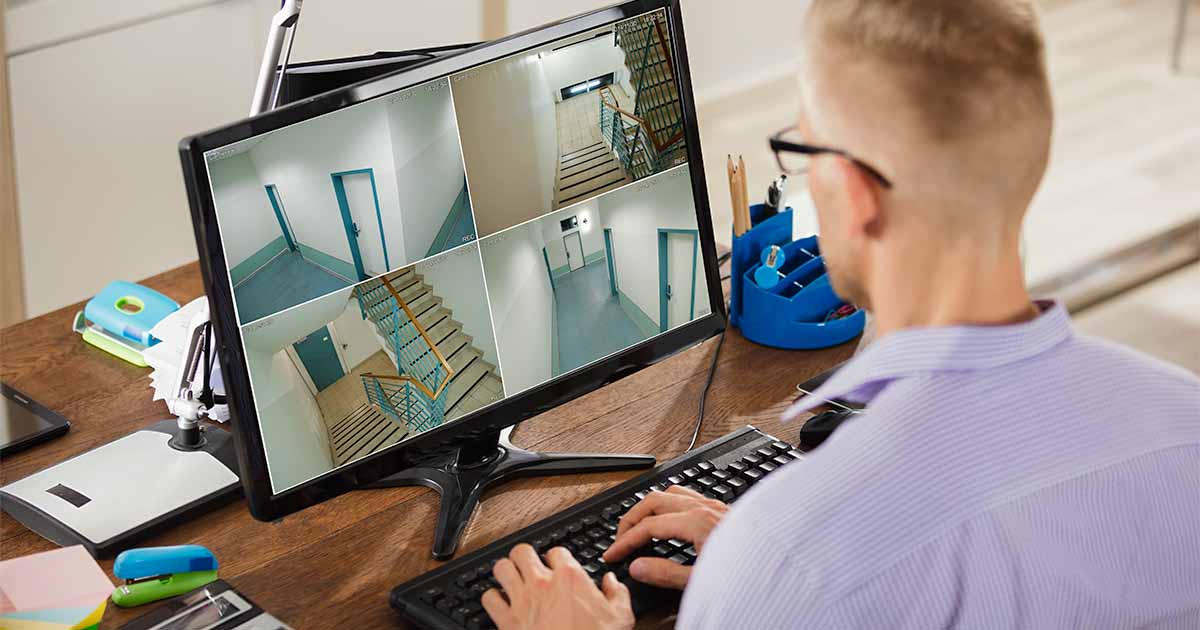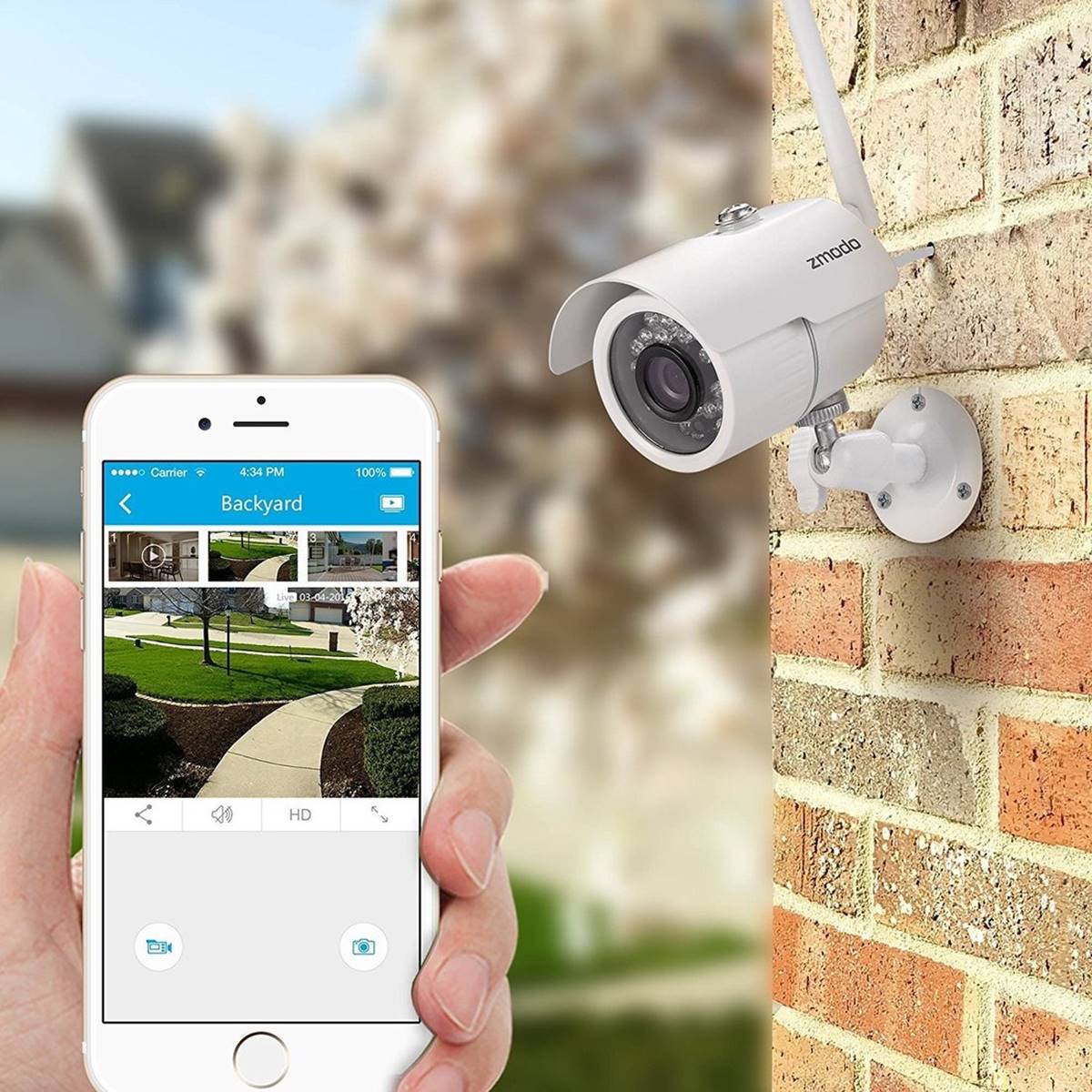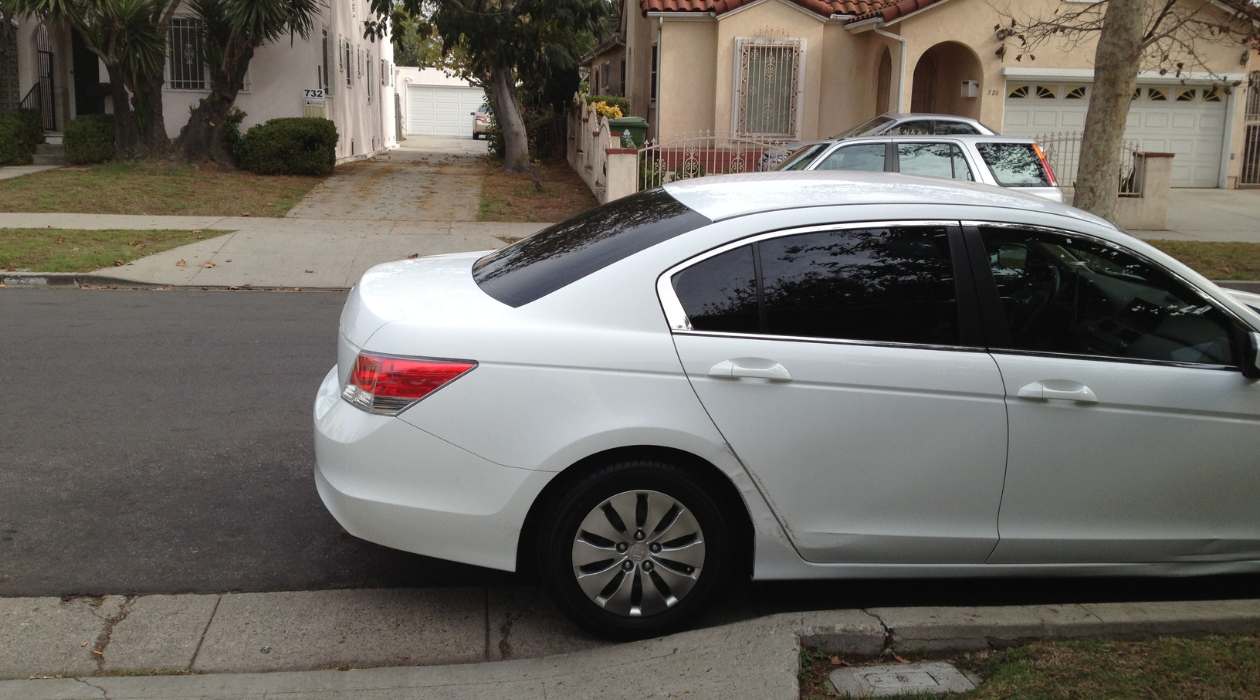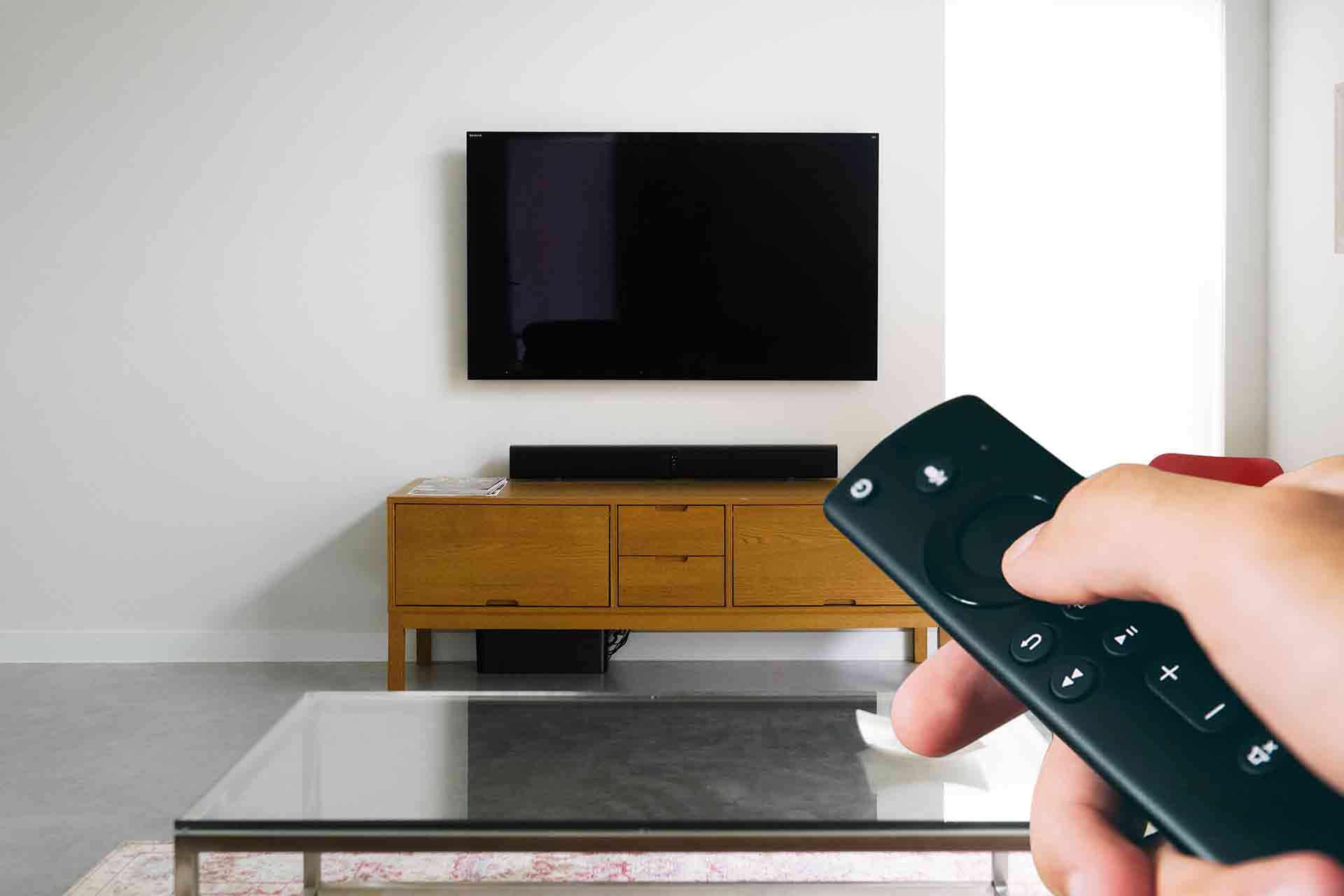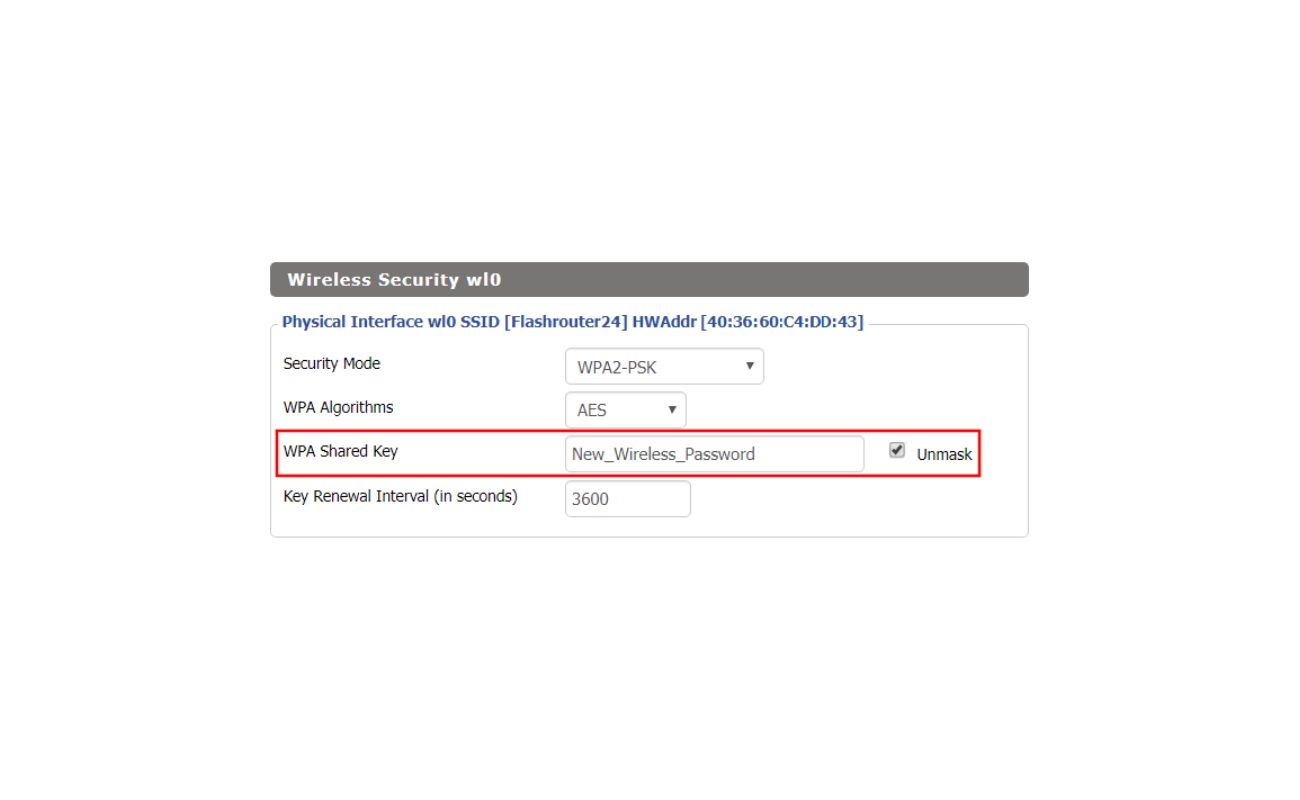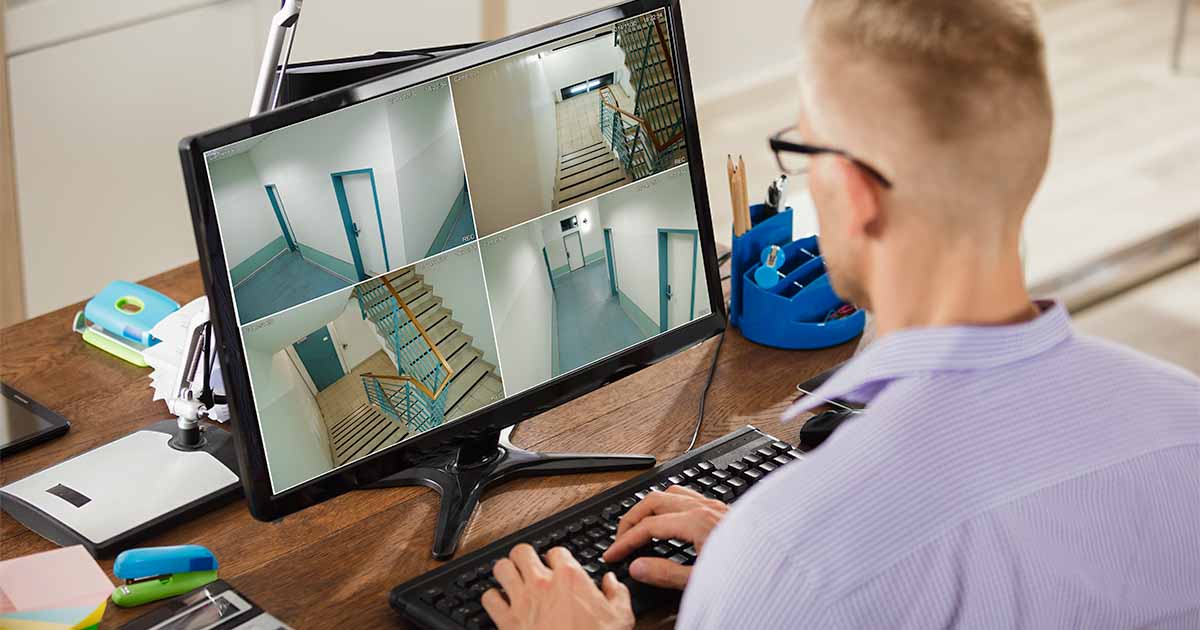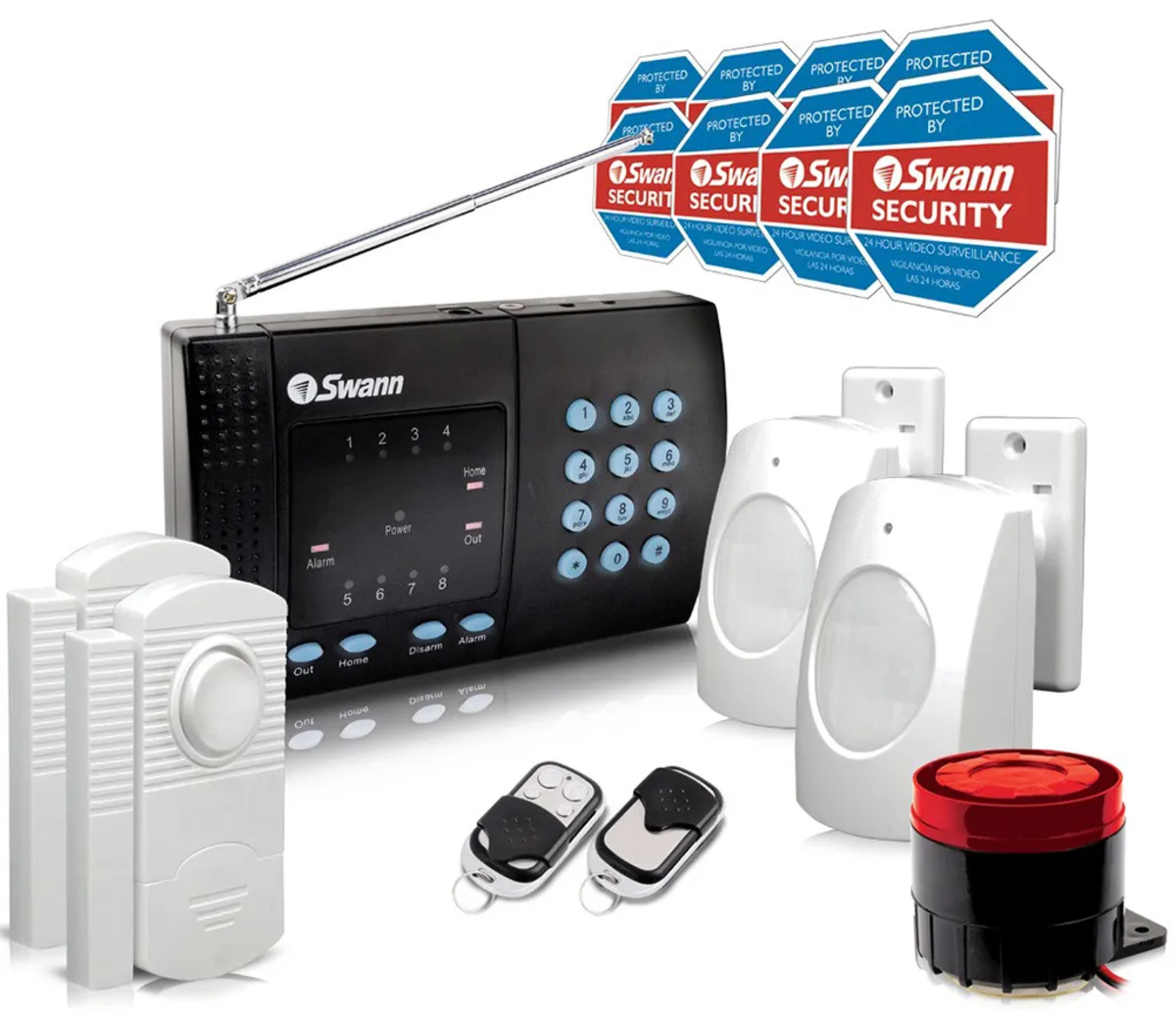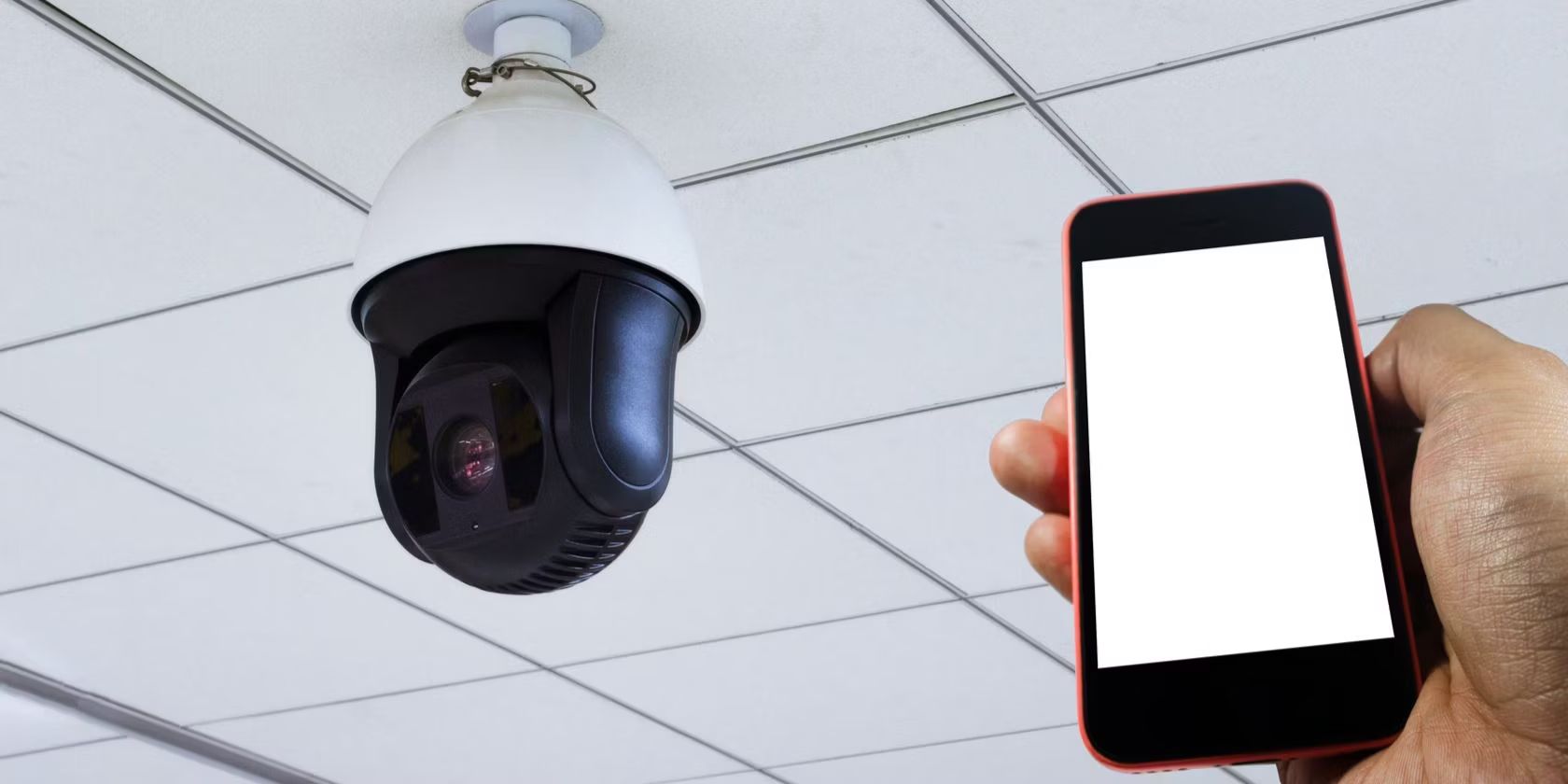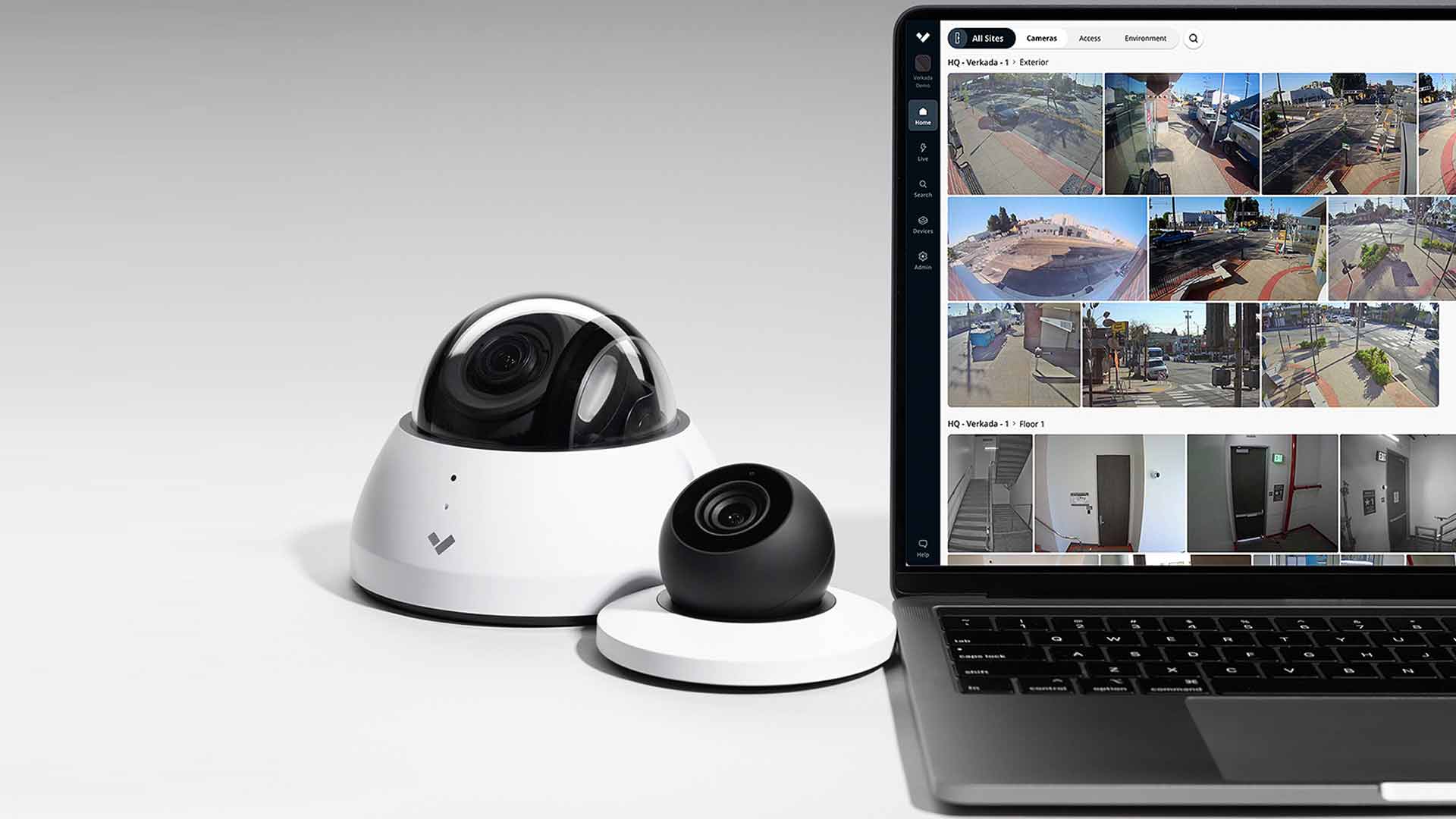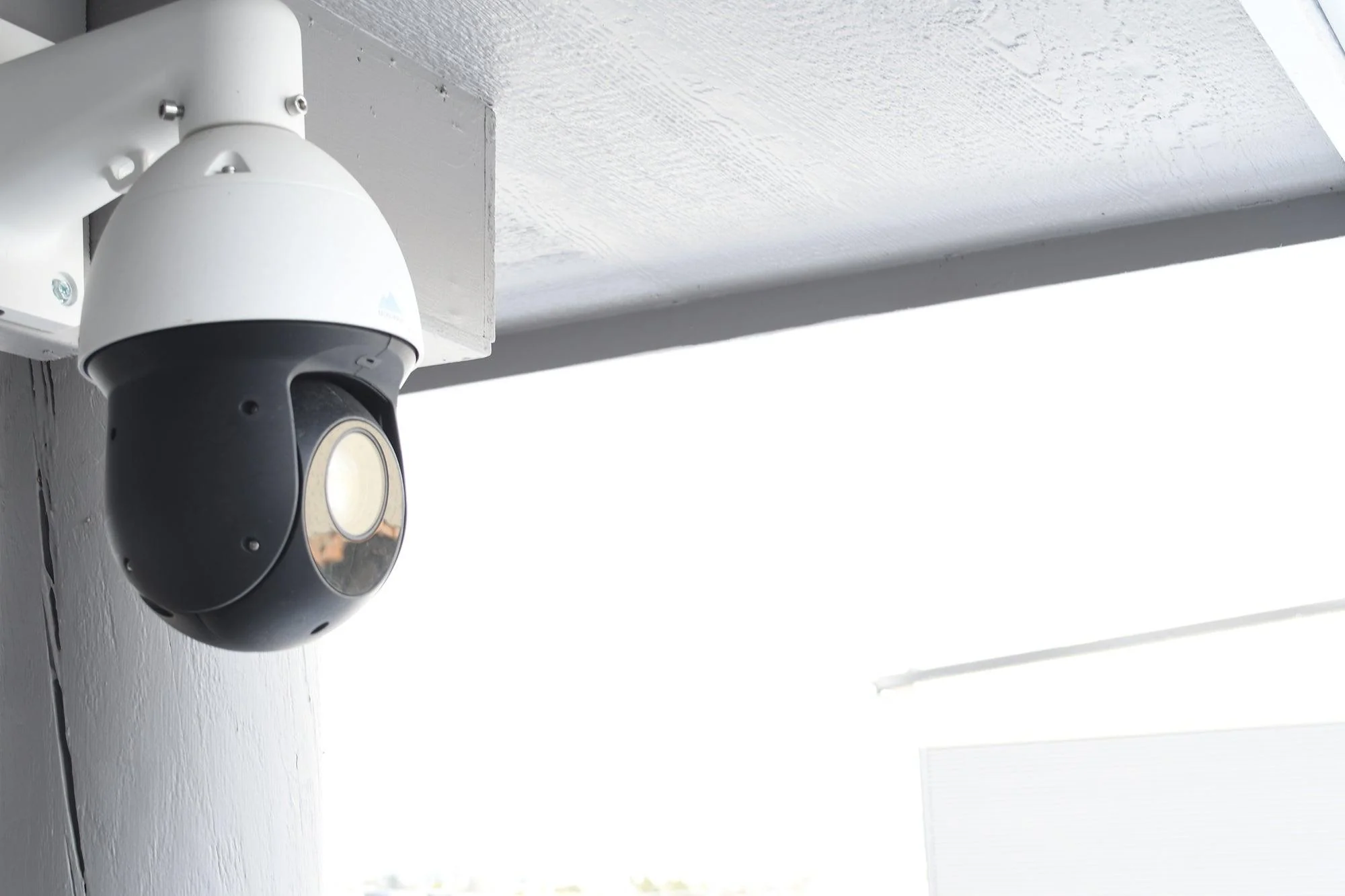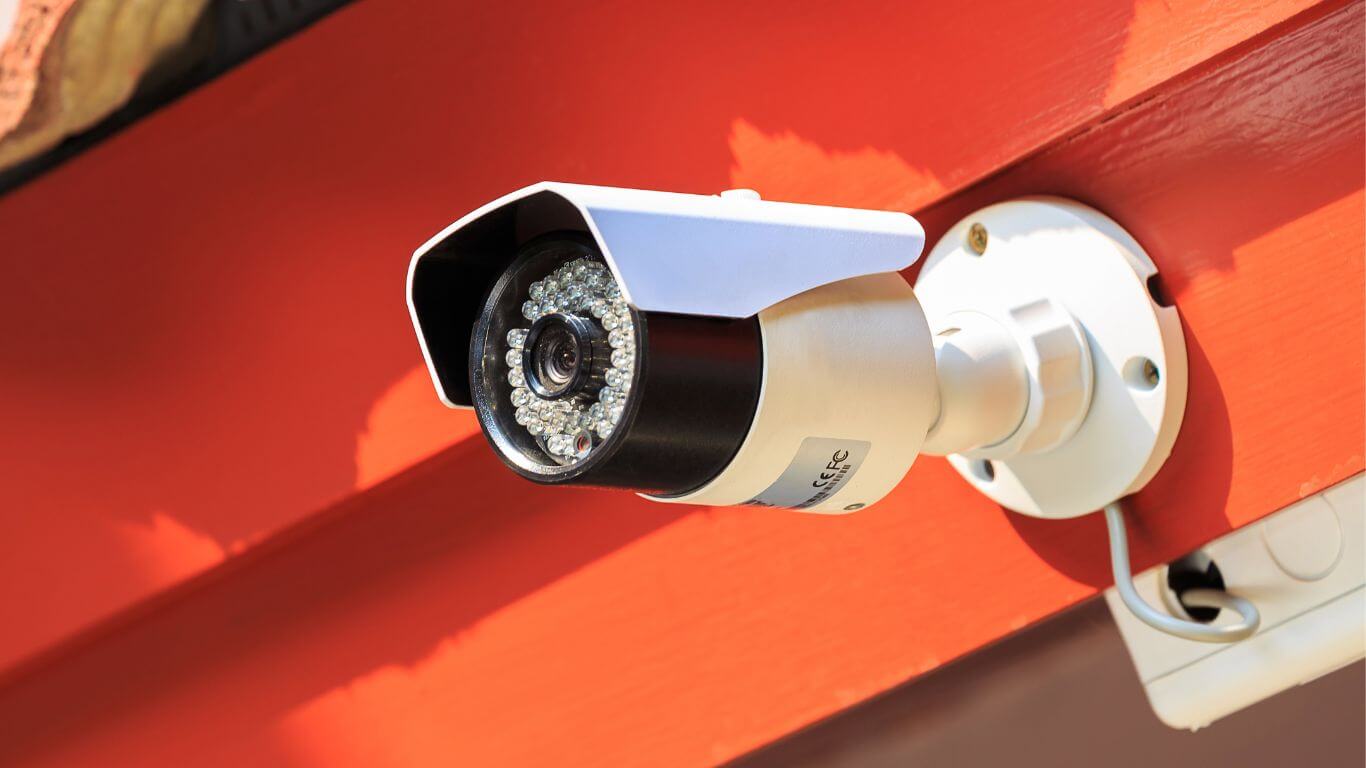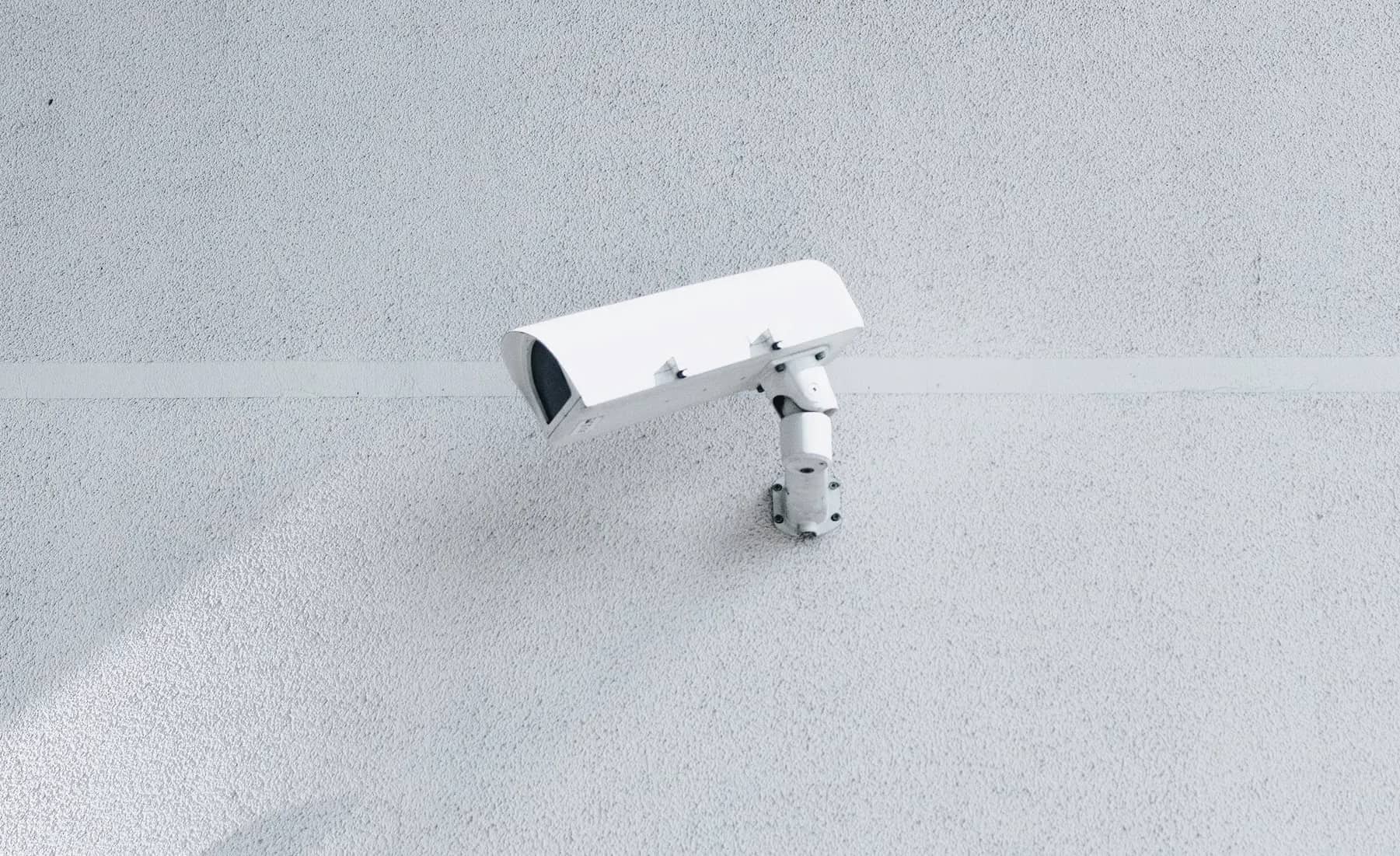Home>Home Security and Surveillance>How Can I Block My Neighbor’s Security Camera
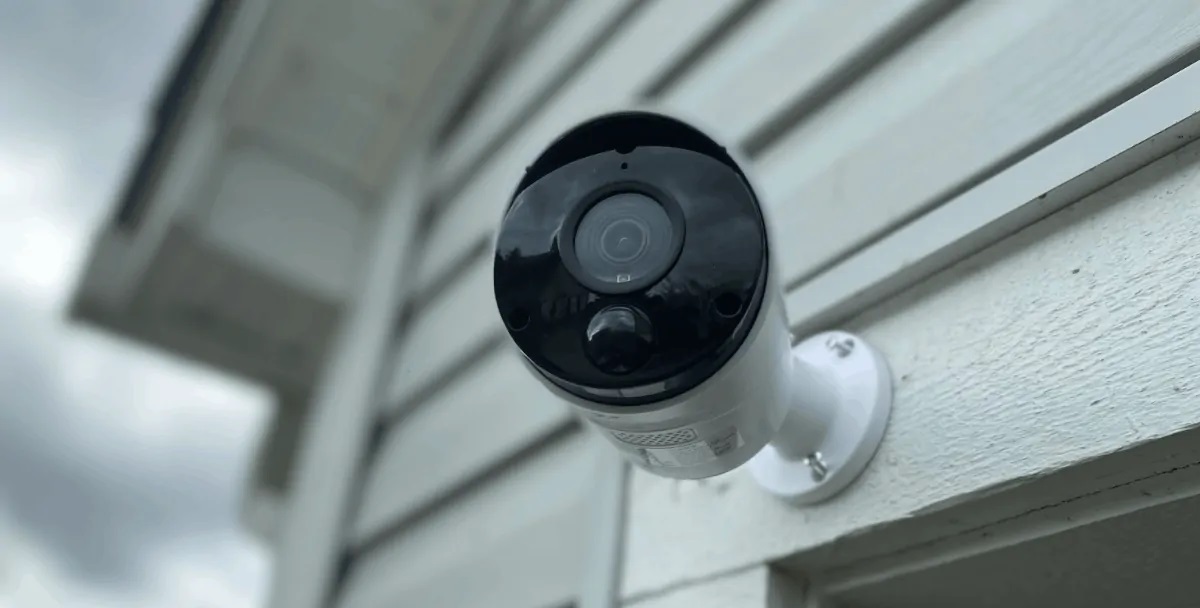

Home Security and Surveillance
How Can I Block My Neighbor’s Security Camera
Modified: October 18, 2024
Looking for ways to protect your privacy? Discover effective methods to block your neighbor's security camera with home security and surveillance tips.
(Many of the links in this article redirect to a specific reviewed product. Your purchase of these products through affiliate links helps to generate commission for Storables.com, at no extra cost. Learn more)
Introduction
Home security is a top priority for many homeowners. Being able to protect your property and loved ones is essential for peace of mind. However, what happens when your neighbor’s security camera starts infringing on your privacy?
The increasing popularity of home surveillance systems has led to various concerns regarding privacy. While security cameras are a valuable tool for deterring crime and monitoring activity, they can inadvertently capture private moments and encroach on neighboring properties. If you find yourself in this situation, it’s crucial to understand your rights and explore potential solutions.
In this article, we will delve into the issue of blocking your neighbor’s security camera and explore the different strategies you can employ to protect your privacy within legal boundaries. We will provide insights into assessing the legalities surrounding the matter, effective communication with your neighbor, using obstructions to block the camera’s view, installing neutralizing devices, and potential legal actions you can take if all else fails.
It’s important to approach this issue delicately and considerately, as maintaining a positive relationship with your neighbor is essential. Let’s dive deeper into the topic and find solutions to address this privacy concern without causing unnecessary conflicts.
Key Takeaways:
- Protect your privacy from a neighbor’s security camera by understanding local laws, communicating respectfully, and using non-confrontational methods like obstructions. Balance your rights with maintaining a positive relationship.
- When dealing with a neighbor’s intrusive security camera, approach the situation with empathy, seek compromise through communication, and consider legal action as a last resort. Prioritize privacy while preserving neighborhood harmony.
Understanding the Issue
Before taking any action, it’s crucial to have a clear understanding of the issue at hand. When facing a neighbor’s security camera that infringes upon your privacy, there are a few key points to consider.
First, identify the exact nature of the problem. Is the camera positioned in a way that captures activities inside your property? Are you concerned about it recording your private conversations or capturing images of your children playing in the backyard? Understanding the specific privacy infringement will help guide your next steps.
Next, research local laws and regulations regarding surveillance cameras. Different regions have varying rules on where and how cameras can be installed, and what constitutes an invasion of privacy. Familiarize yourself with these regulations to determine if your neighbor’s camera is in violation.
Furthermore, consider the intent behind your neighbor’s security camera. Are they using it solely for personal home security? Or do they have other purposes, such as monitoring the neighborhood or keeping an eye on your property? Understanding their motivation will help you communicate effectively and find common ground.
Remember that effective communication is key in resolving any issue with your neighbor. Approach the situation calmly and respectfully to express your concerns and seek a resolution. They might not be aware of the impact their camera is having on your privacy, and a friendly conversation can go a long way in finding a mutually agreeable solution.
Lastly, evaluate the potential consequences of taking action against your neighbor’s security camera. While you have the right to protect your privacy, pursuing certain strategies, such as legal action, may strain relationships and create friction in your neighborhood. Consider these ramifications when deciding on the best approach.
By understanding the issue from various angles, you’ll be better equipped to address the problem effectively and find a resolution that safeguards your privacy while maintaining harmony with your neighbor.
Assessing the Legalities
When dealing with a neighbor’s security camera that is encroaching on your privacy, it’s important to assess the legalities surrounding the situation. Laws regarding surveillance cameras vary depending on your jurisdiction, so it’s essential to familiarize yourself with the relevant regulations in your area.
Start by researching local laws pertaining to the placement and use of security cameras. Many areas have specific guidelines on where cameras can be positioned and what they can record. These laws are designed to protect the privacy of individuals and prevent the improper use of surveillance systems.
Look for provisions that address issues such as recording in private areas, capturing audio, or monitoring activities on neighboring properties. This information will help you determine if your neighbor’s camera is in violation of any laws and provide a foundation for your discussions with them.
In addition to local laws, be aware of any homeowners’ association (HOA) regulations that may apply. Some HOAs have strict guidelines regarding the installation of security cameras and their impact on neighboring properties. Check your HOA rules and regulations to see if your neighbor’s camera violates any of these provisions.
If you find that your neighbor’s security camera is indeed in violation of any laws or regulations, you may have legal grounds to address the issue. Consult with a local attorney who specializes in property and privacy laws to understand your options and the potential legal steps you can take.
Keep in mind that legal action should be considered a last resort, as it often leads to strained relationships and can be a lengthy process. Attempt to resolve the matter through open communication and negotiation before pursuing legal remedies.
Assessing the legalities surrounding your neighbor’s security camera will provide you with a clear understanding of your rights and potential courses of action. By following the proper legal channels, you can seek a resolution that protects your privacy while adhering to the laws and regulations in your area.
Communicating with Your Neighbor
When facing a privacy concern caused by your neighbor’s security camera, open and respectful communication is often the first step towards finding a resolution. Approaching the situation with empathy and understanding can help prevent conflicts and foster a positive relationship.
Start by scheduling a face-to-face meeting with your neighbor. Choose a time when both parties can dedicate their full attention to the conversation. Remain calm and composed throughout the discussion, focusing on finding a solution rather than placing blame.
Express your concerns honestly and clearly, explaining how the security camera is impacting your privacy. Be specific about the incidents or activities that have caused concern and emphasize the importance of maintaining privacy for both yourself and your family.
Listen attentively to your neighbor’s perspective as well. They may not have been aware of the impact their camera was having on you. By actively engaging in a dialogue, you can work towards a compromise that addresses both parties’ needs.
Suggest potential solutions that can help alleviate your privacy concerns. This could include adjusting the camera’s position or angle to limit its view of your property, installing privacy screens or blinds, or setting up specific camera settings to avoid capturing certain areas. Collaborating on finding a mutually agreeable solution can lead to a positive outcome.
If the initial conversation does not yield a satisfactory resolution, consider involving a mediator or a community association if applicable. A neutral third party can help facilitate the conversation and find a compromise that respects both parties’ interests.
Remember that maintaining a good relationship with your neighbor is important, as you will continue to live in close proximity to each other. Keep the lines of communication open and make an effort to resolve the issue amicably.
In cases where communication does not lead to a resolution, you may need to explore other options, such as blocking the camera’s view or seeking legal advice. However, these steps should be considered only after all attempts at communication have been exhausted.
By communicating with your neighbor in a respectful and understanding manner, you can increase the chances of finding a solution to your privacy concerns without damaging your relationship.
Consider having a calm conversation with your neighbor about your concerns. If that doesn’t work, check local laws and regulations regarding security cameras and privacy. You may also consider installing a fence or planting tall bushes for privacy.
Blocking the Camera with Obstructions
If communication with your neighbor has not yielded the desired results, one option to consider is blocking the view of the security camera using obstructions. By strategically placing objects or installing barriers, you can protect your privacy and limit the camera’s scope.
Before proceeding, it’s important to check local regulations to ensure that obstructing the camera does not violate any laws or regulations. Be mindful of any specific guidelines that dictate what can and cannot be used as obstructions.
Here are a few potential obstructions you can consider:
- Trees and Shrubs: Planting tall trees or dense shrubbery along your property line can create a natural barrier that blocks the camera’s view. However, be cautious not to plant anything that extends onto your neighbor’s property without permission.
- Privacy Screens: Installing privacy screens or fences can help obstruct the camera’s line of sight. These can range from simple wooden or vinyl screens to more elaborate options such as bamboo or lattice screens. Choose a design that not only blocks the camera but also complements the aesthetics of your property.
- Window Films: For indoor security cameras that capture your activities through windows, applying privacy films or blinds can help block the camera’s view while still allowing natural light to enter your home.
- Decorative Items: Consider placing decorative items, such as statues, potted plants, or other objects, strategically in the line of sight of the camera. This can obscure the camera’s view and provide an aesthetically pleasing solution.
- Outdoor Structures: If feasible and within local guidelines, you can install structures such as pergolas, gazebos, or trellises that partially obstruct the camera’s view while adding functional and visual appeal to your property.
It’s important to note that while obstructions can limit the camera’s view from your property, they may not completely eliminate the capturing of your activities from other angles or areas. Therefore, consider this method as a temporary solution while exploring other options.
Remember to approach the situation with caution and respect for your neighbor’s property. Discuss your plans with them beforehand, as obstructing the camera’s view may trigger further communication or potential conflicts. Open lines of communication can lead to understanding and potentially finding a compromise that respects both parties’ needs.
Blocking the view of your neighbor’s security camera with obstructions can be a practical and non-confrontational way to protect your privacy. However, it’s important to always be mindful of existing regulations and maintain a respectful approach throughout the process.
Read more: How To Find A Neighbor’s Outdoor Cameras
Installing a Neutralizing Device
If blocking the view of your neighbor’s security camera with obstructions is not a viable solution or has not provided the desired privacy, you may consider installing a neutralizing device. These devices are designed to counter or disrupt the signal of surveillance cameras without damaging them.
Before proceeding with the installation of any neutralizing device, it’s important to consult local laws and regulations. Some jurisdictions may have restrictions on the use of these devices, as they can potentially interfere with other electronic devices in the vicinity.
Here are a few types of neutralizing devices you can explore:
- Camera Jammer: A camera jammer emits signals that interfere with the frequency used by surveillance cameras, disrupting their functionality. It’s crucial to note that jamming devices pose legal and ethical considerations, and their use may be prohibited in many areas.
- IR Blaster: If the security camera in question relies on infrared technology for night vision, an infrared (IR) blaster can be used to emit a strong infrared signal that overwhelms the camera’s sensors, rendering it unable to capture clear images.
- Anti-Drone Systems: In cases where the security camera is mounted on a drone, specialized anti-drone systems can be employed to detect and neutralize the drone’s signals, thereby preventing it from invading your privacy.
- Laser Pointers: Though not a standalone device, powerful laser pointers can be used to temporarily blind or disrupt the camera’s sensors. However, caution must be exercised when using laser pointers, as their misuse can have legal consequences.
It’s crucial to note that using neutralizing devices can be a sensitive matter and may have legal ramifications. Before deploying any device, research local laws and consult with legal professionals who specialize in privacy and surveillance matters to ensure you are acting within the boundaries of the law.
Additionally, keep in mind that using a neutralizing device may escalate the situation with your neighbor. It’s advisable to explore other options, such as open communication and negotiation, before resorting to this method.
Installing a neutralizing device should be approached with caution and with a clear understanding of the potential legal and practical implications. Consider seeking professional advice to ensure that you are making informed decisions and acting responsibly.
Seeking Legal Action
If all attempts to resolve the issue of your neighbor’s intrusive security camera have been unsuccessful, seeking legal action may be your last resort. However, it’s important to understand that pursuing legal remedies can be a complex and time-consuming process.
Before proceeding with legal action, consult with a lawyer who specializes in property and privacy laws. They will provide guidance on the specific steps you can take based on local regulations and the details of your situation.
Here are some potential legal actions you can consider:
- Cease-and-Desist Letter: A cease-and-desist letter is a formal communication sent to your neighbor requesting them to stop the intrusive surveillance. The letter outlines the issue, provides evidence of the violation, and demands that they take immediate steps to rectify the situation.
- Mediation: Mediation involves involving a neutral third party to help facilitate a resolution between you and your neighbor. This can be a mediator, community association representative, or a local dispute resolution center. Mediation allows for open and structured discussions to find a compromise that satisfies both parties.
- Restraining Order/Injunction: In extreme cases where the intrusive surveillance is causing significant harm or distress, you may consider seeking a restraining order or injunction. This legal action would prohibit your neighbor from continuing their intrusive surveillance of your property.
- Small Claims Court: If the intrusion has resulted in quantifiable damages, you might choose to file a lawsuit in small claims court seeking compensation for those damages. Small claims court is designed to handle disputes involving smaller financial amounts, making it a more accessible option for resolving the issue.
- Consulting Local Authorities: If you believe your neighbor’s actions violate local laws and regulations, you can contact the appropriate local authorities, such as the police or code enforcement agency. They can investigate the matter and take appropriate action if necessary.
Keep in mind that resorting to legal action should be a last resort, as it can strain relationships and escalate the conflict. Consider pursuing legal remedies only when all other attempts at resolution have been exhausted.
It’s important to note that the legal processes mentioned may vary depending on your jurisdiction. Consult with an attorney to ensure you fully understand the legal options available to you and the potential consequences involved.
By seeking legal action, you are asserting your rights and advocating for your privacy. Proceeding in a cautious and informed manner will help increase the chances of a favorable outcome.
Conclusion
Dealing with a neighbor’s security camera that encroaches on your privacy can be a challenging and delicate situation. However, by taking a proactive and thoughtful approach, you can protect your privacy while maintaining a positive relationship with your neighbor.
Understanding the issue is the first step in finding a resolution. Assess the specific impact the camera has on your privacy and research local laws and regulations to determine the legality of the situation.
Communicating openly and respectfully with your neighbor is crucial. Express your concerns and work towards finding a compromise that respects both parties’ needs. Exploring solutions such as obstructing the camera’s view with obstructions can be a practical temporary measure.
If other methods have been unsuccessful, installing a neutralizing device may be an option, though caution and legal advice are essential due to potential legal and ethical implications. In rare cases where all else fails, seeking legal action becomes a last resort to protect your privacy and assert your rights.
Throughout this process, it’s important to remember that maintaining a positive relationship with your neighbor is beneficial in the long run. Strive for open communication and seek mutual understanding while working towards a resolution.
In conclusion, addressing the issue of a neighbor’s intrusive security camera requires a balance between asserting your rights and maintaining harmony in the neighborhood. By being informed, respectful, and proactive, you can navigate this situation with integrity and protect your privacy.
Frequently Asked Questions about How Can I Block My Neighbor's Security Camera
Was this page helpful?
At Storables.com, we guarantee accurate and reliable information. Our content, validated by Expert Board Contributors, is crafted following stringent Editorial Policies. We're committed to providing you with well-researched, expert-backed insights for all your informational needs.
